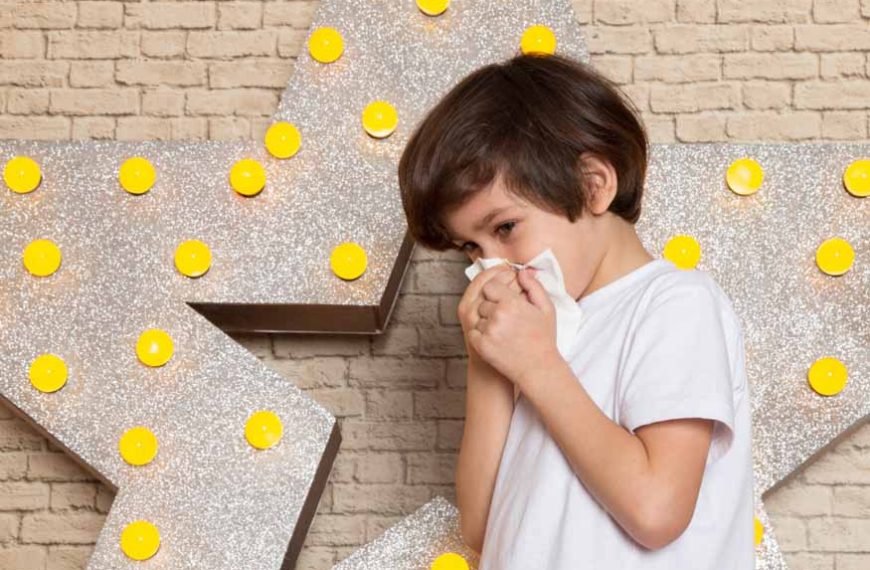Drug allergy, commonly known as medication allergy, is a reaction to certain medications. It can be caused by prescription, and non-prescription drugs, and herbal supplements. Drug allergy is triggered when your immune system rejects certain drugs or mistakes them for harmful substances.
Your immune system goes into attack mode to prevent these medications from harming your body. However, this reaction can have several side effects on your body. Children, especially, can experience allergy symptoms that can range from mild to severe. Since their immune system is still in the development stage, they are prone to allergy to drugs. Some develop hives, rashes, and fever, while others are hospitalized because of a serious medical condition called anaphylaxis.
Drug allergy is different from drug toxicity, which is provoked by the overdose of a specific medication. It’s also different from the medicine’s side effects. Usually, the side effects of each medication, prescription or non-prescription, are listed on the product’s label. Keep reading to learn more about allergic reactions in toddlers.
Allergic Reaction Symptoms in Toddlers
Any kind of medication, whether taken orally, in an injectable form or topical, can cause an allergic reaction in kids. As mentioned above, an allergic reaction is triggered when your immune system launches its defense system, such as histamine, to attack a substance in your body. Allergic reaction symptoms in toddlers can vary in children, but the most common symptoms include:
- Skin issues, such as rashes, swelling, and hives. Your toddler can also develop swelling around the eye and lips
- Problems with the gastrointestinal tract, like nausea and vomiting
- Fever
- Respiratory issues, such as difficulty breathing and coughing
In rare cases, a child can develop anaphylaxis, a life-threatening condition that requires immediate medical care. You need to take your toddler to the nearest emergency center instantly if their blood pressure drops or they go unconscious. Other symptoms of anaphylaxis are trouble breathing, swollen face, hives, nausea, vomiting, and more.
Anaphylaxis is treatable. The injection of epinephrine can help reduce the symptoms and save your toddler’s life. If your child is at risk of severe allergic reactions, carry self-injectable epinephrine and inject it immediately if you notice the above-listed symptoms.
Parents should go over the label of each medication before giving it to the child. If your toddler is allergic to any ingredient in the medication or herbal supplements, it’s best to avoid it. Take your toddler to the doctor immediately if you notice any or all of the above symptoms.
Medications Associated With Allergies in Toddlers
Any medication can cause an allergic reaction in toddlers. It depends on which substance in the drug your body is allergic to. However, certain types of allergy medications have an increased likelihood of causing allergic reaction symptoms in toddlers. Here are a few:
- Penicillin and other antibiotics
- Over-the-counter painkillers, such as ibuprofen and aspirin
- Chemotherapy medication
- Insulin for Type 1 and Type 2 diabetes
- Anti-seizure drugs
In some cases, your body might produce the same symptoms as the drug allergy, but they aren’t caused by your immune system. The technical term for the condition is non-allergic hypersensitivity reaction. The common types of allergic medications that can trigger it are local anesthetics, dyes, and aspirin.
Who’s at Higher Risk of Getting Medication Allergy?
Any toddler can develop an allergic reaction to just about any medication. It’s difficult to know which drug will trigger an allergy, especially if you are giving it to your child for the first time. Keeping track of the substances or ingredients that your toddler is allergic to can help you avoid drugs that can cause allergic reactions. Certain factors can put your toddlers at an increased risk of allergy. Here are they:
- Children who have had an allergic reaction to a specific drug are highly likely to get an allergic reaction to the same drug in the future.
- Genetic conditions make some toddlers more likely to develop medication allergies than others. For instance, a family history of drug allergy makes your toddler likely to develop the same drug allergy.
- Increased intake of certain drugs
- Children diagnosed with a medical condition that weakens their immune system, such as HIV infection, put them at a greater risk of developing an allergic reaction to certain drugs.
How to Test Drug Allergies in Toddlers?
Seeking medical attention immediately if you notice the symptoms of allergy is important to get your child the required medical assistance. Your healthcare provider will examine the symptoms and ask questions about your toddler’s condition to determine whether it’s an allergic reaction or a simple side effect.
An oral test is most commonly preferred by parents who believe their child might be allergic to certain prescription medications. The healthcare provider will closely monitor your child after the drug intake. Skin test is another common way to test drug allergies in a toddler. A nurse will inject the medication through a thin needle into your child’s arm and watch for positive symptoms, such as rashes, swelling, or red bumps.
The best way to prevent allergic reactions to drugs in toddlers is by recording the substances they are allergic to. Stop medication immediately if your child develops hives, rashes, fever, gastrointestinal problems, respiratory issues, and other symptoms of allergy.
Do not give your kids non-prescription medication. Over-the-counter painkillers might seem the best option to give your child temporary relief, but they can have adverse reactions. It’s best to seek medical attention if your child has any medical condition. The doctor will prescribe medication based on your child’s age, risk factors, and history of allergic reactions.
Bottom Line
Allergic reactions are quite common in people. However, kids are more likely to develop an allergy to drugs because of their underdeveloped immune system. The symptoms of an allergic reaction will resolve within a few days, but it’s best to seek medical attention, as certain symptoms can mean a life-threatening condition, like anaphylaxis.
For more such interesting blogs, Visit EuroKids.
















